Writing Teaching Resources
Teaching writing strategies and the writing process this school year? Explore a comprehensive collection of teacher resources for elementary and middle school ELA teachers — all created by teachers!
Stocked with graphic organizers, writing prompts, templates, worksheets and so much more, this collection of printable and digital activities is designed to help you as you help your students become more effective communicators and unleash their creativity and imagination.
Save time on lesson planning with resources that have been through a careful review process by an expert member of our teacher team to ensure they're ready for your classroom and your students!
Are you looking for tips and tricks to add to your teacher toolkit this school year? Read on for a primer from our teacher team, including engaging activities for teaching writing in elementary and middle school and a look at some of the different writing strategies your students will need to learn.
11 Writing Strategies Kids Should Know by the End of Middle School
We can't talk about teaching kids to write without talking about the different writing strategies that can help them do just that!
When it comes to teaching our students to become confident writers who articulate their ideas effectively, here are some of the strategies our teacher team prioritizes:
1. Brainstorming
Brainstorming is something we often do in the classroom, and it's a crucial part of learning to generate the ideas that will drive students' writing as they progress through their educational journey. Kids should know how to create a list of potential topics or points related to a particular writing assignment.
With younger students, this is often done as a whole group by writing ideas and points on chart paper. In upper grades, students transition over to using text-based materials to generate ideas and talking points.
2. Outlining
Before diving directly into any assignment, our students should be able to create a structured framework or outline. Teaching students how to create this outline will help them organize their thoughts and arguments for penning their essays, reports and research papers.

3. Using Graphic Organizers
Technically graphic organizers are classroom tools, so you may not think of their use as a writing strategy per se. However, learning to use these tools is another means of providing kids with the tools they need to organize their ideas and information before they sit down to write.
These organizers are particularly useful for expository writing — students can use them to outline main ideas, supporting details, and transitions.
Students can also take advantage of story maps when they are working on narrative writing to plot the key elements of a story, such as characters, setting, conflict, rising action, climax and resolution.
Graphic organizers such as the OREO strategy and hamburger paragraph are also great tools for students to use when working with opinion and persuasive texts.
4. Freewriting
Writer's block is the enemy of creativity, and it can easily frustrate young students who don't know where to begin.
When students freewrite, they write continuously without worrying about grammar or punctuation. This writing strategy can be extremely freeing — hence the name! — and helps frustrated writers move past that writer's block, generating fresh ideas.

5. Peer Editing
Learning to review and provide constructive feedback on each other's work is a great writing strategy to employ in your classroom to help students improve their writing quality and enhance their editing skills.
The strategy allows your students to learn from one another, and it arms them with an important tool they can use well into the future — calling on peers to provide a critical eye to a piece of writing.
6. Using Sensory Language
Working on descriptive writing? With this writing strategy, students engage the reader's senses through vivid and sensory language to create a more immersive experience.
7. Including Transitions and Connectives
As students become more proficient in the writing process, learning to use transitional words and phrases allows them to create smooth transitions between sentences and paragraphs. This strategy makes their writing more coherent and polished.
8. Incorporating Evidence
In persuasive, opinion, and expository writing, students are taught to support their claims with evidence and examples to strengthen their arguments.
It takes some practice to train your students to use evidence in their writing, so it's often a good idea to start with something simple, like the R.A.C.E.S. strategy.
9. Crafting a Thesis Statement
In expository, opinion, and persuasive writing, crafting clear and concise thesis statements that summarize the main point or argument of their essay helps students be more focused and organized in their writing. This strategy can also have the effect of empowering students to express their ideas confidently and persuasively.
10. Incorporating Introductions and Conclusions
With this strategy, students practice crafting effective introductions and conclusions that grab the reader's attention and leave a lasting impression.
11. Following a Revision Checklist
Teaching your students to use a revision checklist is a strategy that will help them be more self-reflective, evaluating their own writing against the checklist criteria and becoming more aware of their strengths and weaknesses.

- Plus Plan
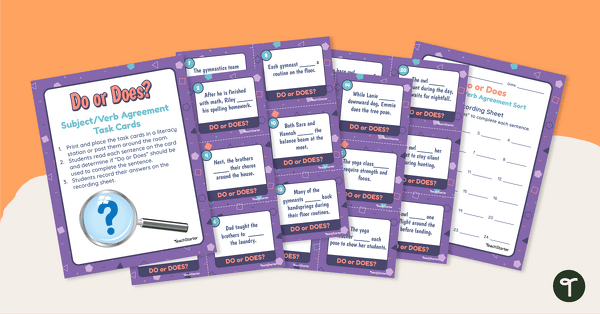
Do/Does Subject Verb Agreement Task Cards
Practice using DO and DOES correctly using a set of Subject-Verb agreement task cards.
- Plus Plan
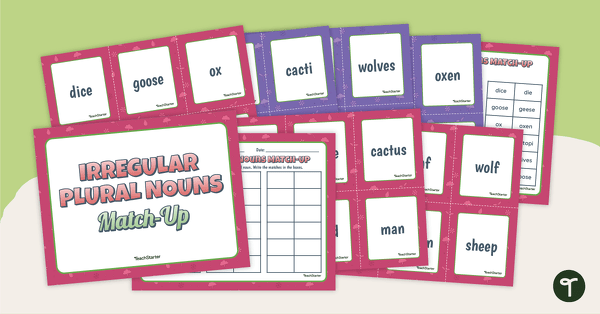
Irregular Plural Noun Match-Up
Practice using irregular plural nouns with an Irregular Plural Noun Matching Activity.
- Plus Plan
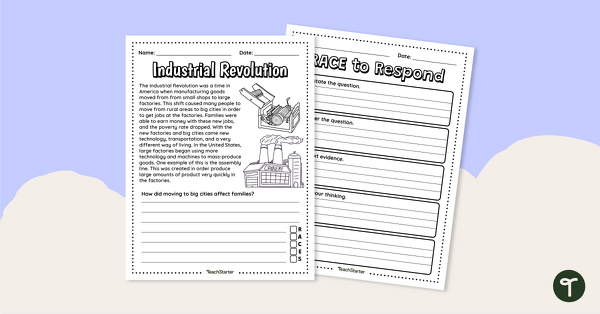
Industrial Revolution Worksheet - Constructed Response
Blend reading, writing, and history concepts surrounding the Industrial Revolution with a constructed response worksheet and graphic organizer.
- Plus Plan
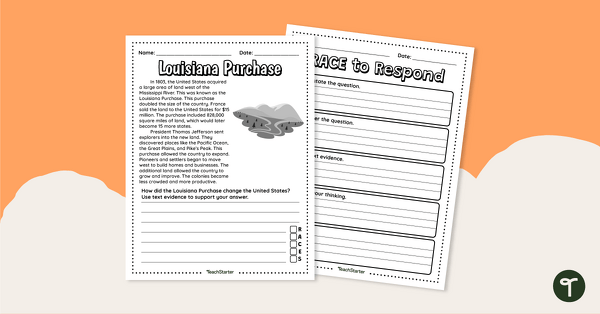
The Louisiana Purchase -Constructed Response Worksheet
Integrate reading, writing, and Social Studies content with a Louisiana Purchase Constructed Response worksheet and graphic organizer.
- Plus Plan
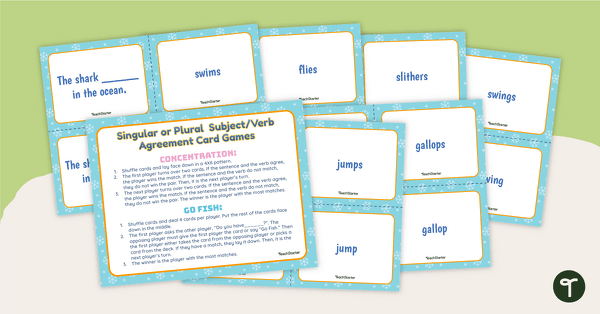
Singular/Plural Subject Verb Agreement Card Game
Provide students with additional grammar practice with a card game focusing on singular and plural subject-verb agreement.
- Plus Plan
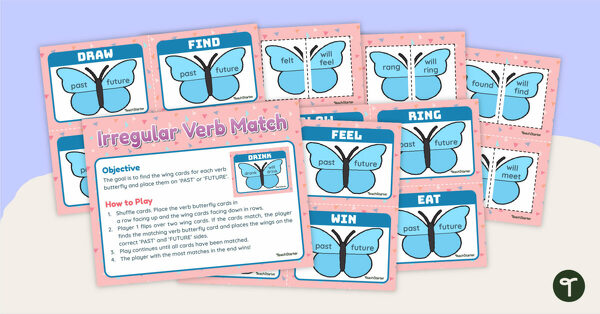
Past, Present, and Future Verb Tense Matching Activity - Irregular Verbs
Master past, present, and future tenses of irregular verbs with a butterfly matching activity.
- Plus Plan
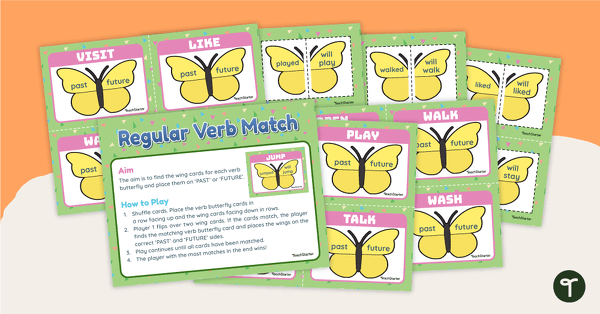
Past, Present, and Future Verb Tense Matching Activity - Regular Verbs
Practice using past, present, and future tenses of regular verbs with a butterfly matching activity.
- Plus Plan
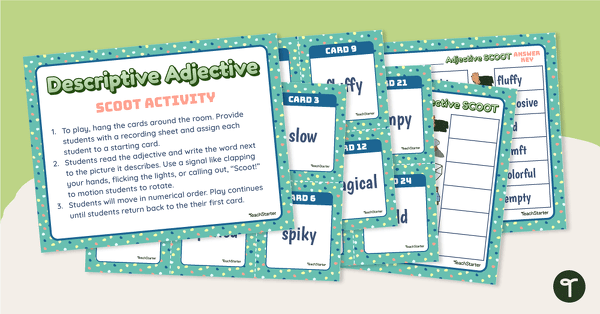
Descriptive Adjectives SCOOT! Game
Build vocabulary and grammar skills with a game of Adjective SCOOT!
- Plus Plan
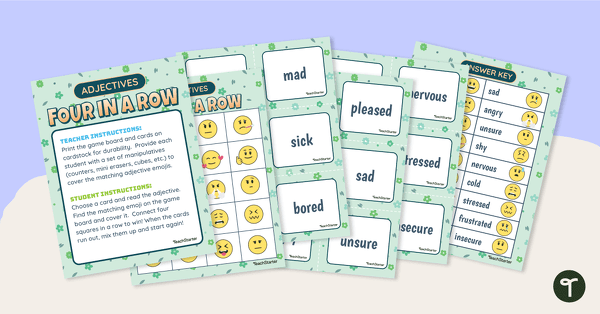
Adjective Emoji Four in a Row
Match emoji picture cards with their corresponding descriptive adjectives with a fun game of Four-in-a-Row.
- Plus Plan
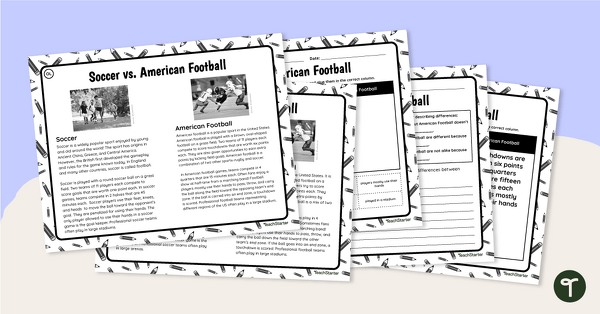
Soccer vs. Football -Differentiated Paired Passage Worksheets
Differentiate reading instruction with nonfiction texts, compare and contrast activities, and response to text writing opportunities.
- Plus Plan
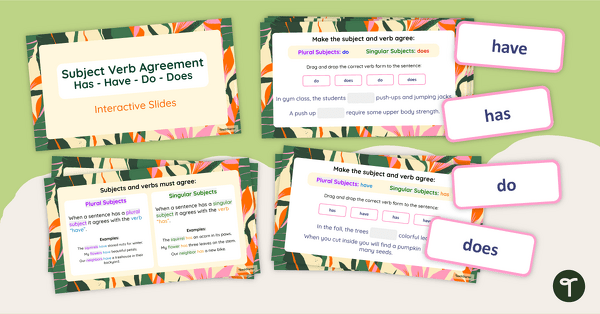
Has/Have, Do/Does Subject Verb Agreement Interactive Activity
Practice building sentences using has, have, do, and does with this Google Slides Interactive subject-verb agreement activity.
- Plus Plan
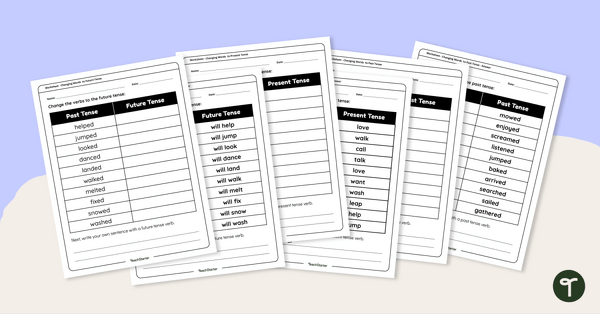
Past, Present, and Future Tense Worksheets - Grades 1/2
Provide students with additional verb tense practice with worksheets focusing on changing verbs into past, present, and future tense.
- Plus Plan
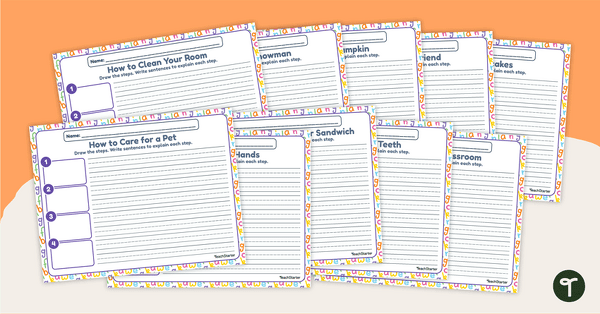
First Grade Informational Writing – How To Prompt Worksheets
Help your first graders learn how to write an informational piece using these handy writing prompt worksheets
- Plus Plan
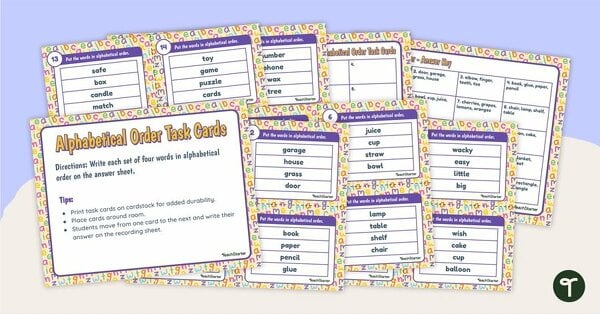
Alphabetical Order Task Cards (Grades 1-2)
Give your students some practice putting words in alphabetical order with a set of 20 task cards.
- Plus Plan
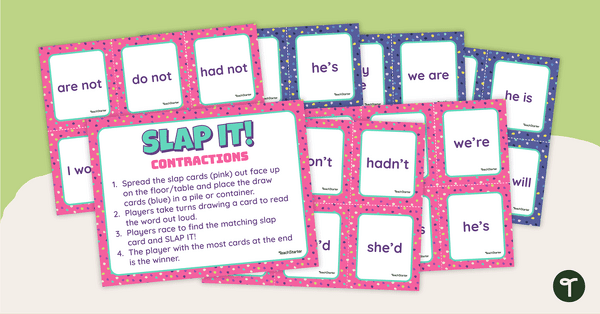
Contractions SLAP IT! Card Game
Play a contraction matching game to enhance grammar and spelling skills in the classroom.
- Plus Plan
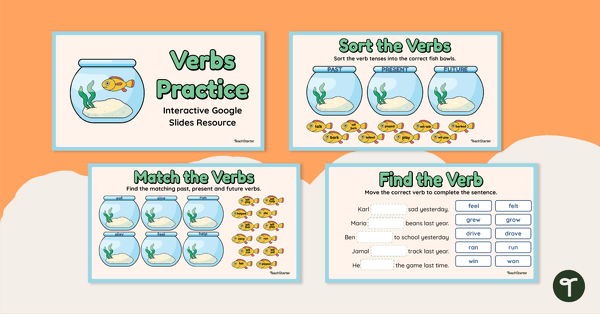
Google Slides Interactive- Past, Present, and Future Verbs Activity
Develop student skills using the correct forms of past, present, and future tense verbs with this Google Slides Interactive activity.
- Plus Plan
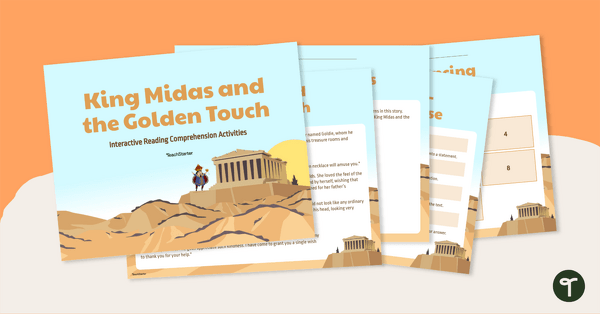
Reading Comprehension Worksheets-King Midas and the Golden Touch Google Interactive and Printable Resources
Review and practice multiple reading skills using the text “King Midas and the Golden Touch” with these digital and print resources.
- Free Plan
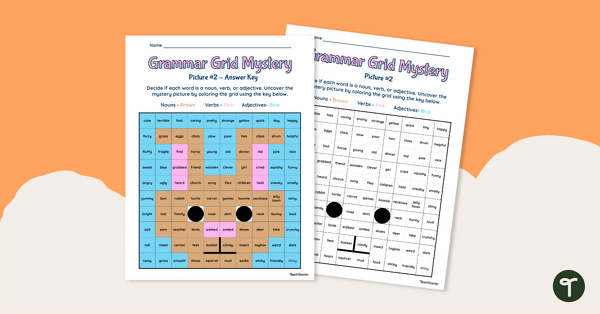
Grammar Grid Mystery Picture Worksheet- Nouns, Verbs, Adjectives (Bunny)
Follow the color-coded parts of speech guide to fill in the word grid and reveal a mystery image.
- Plus Plan
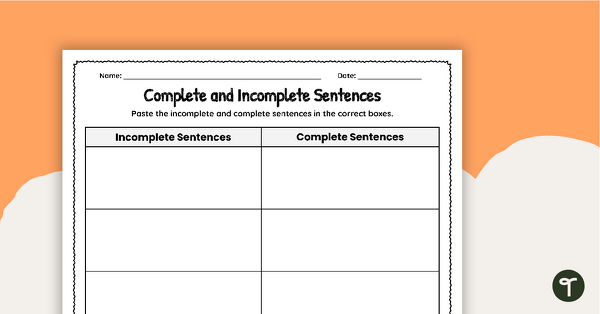
Complete and Incomplete Sentences Cut and Paste Worksheet
Sort 6 phrases by whether they are incomplete and complete sentences with this cut & paste worksheet.
- Plus Plan
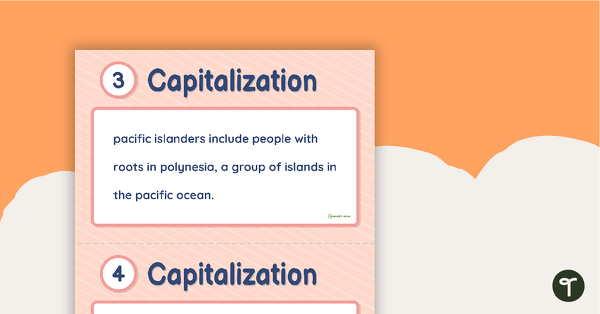
Capitalization Task Cards (Grades 4-5)
Practice capitalizing less frequently occurring words (historical periods, events, languages, races, nationalities, and more) with 28 text task cards.
- Plus Plan
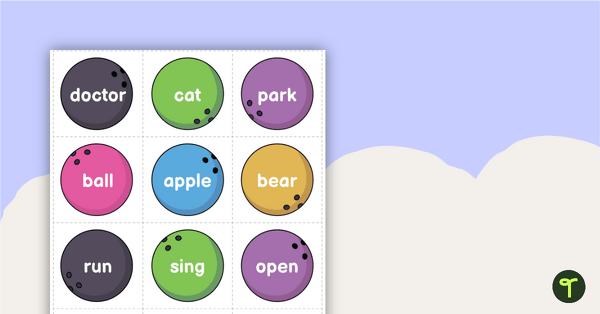
Bowling Game - Parts of Speech
Practice recognizing parts of speech by matching 36 word cards to noun, verb, adjective, pronoun, and preposition pins.
- Plus Plan
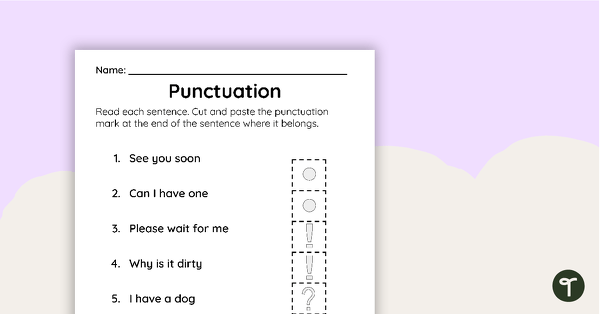
Ending Punctuation - Cut and Paste Worksheet
A cut and paste worksheet to practice adding the correct punctuation marks.
- Plus Plan
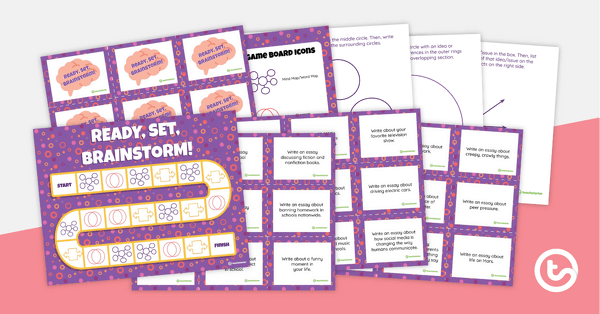
Ready, Set, Brainstorm! - Board Game
A board game to practice brainstorming using mind maps, Venn diagrams, and cause and effect charts.
- Plus Plan
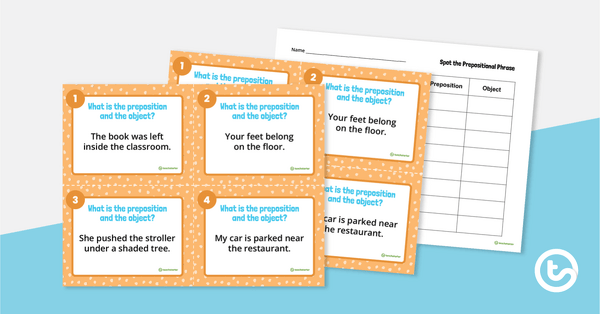
Spot the Prepositional Phrase – Task Cards
Identify the prepositional phrase within a sentence with this set of 16 task cards.
- Plus Plan
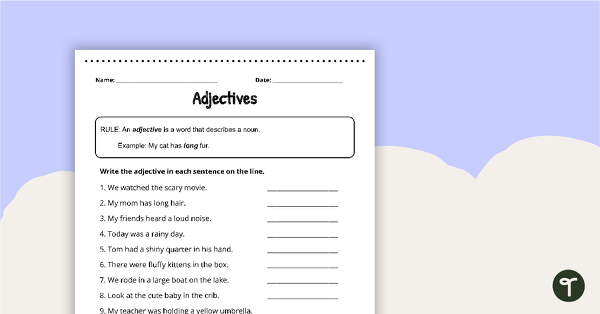
Adjectives Worksheet
Practice identifying and writing adjectives in sentences with this 1-page worksheet.
- Plus Plan
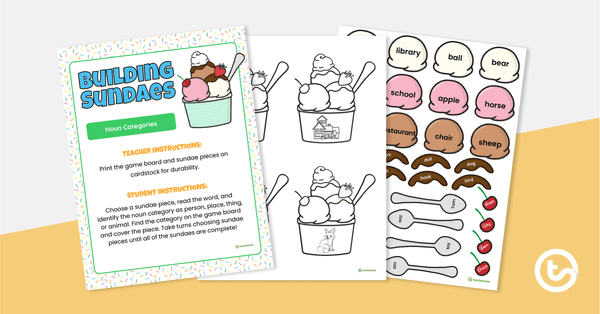
Building Sundaes - Noun Categories
Read and sort nouns while crafting deliciously decodable sundaes.
- Plus Plan
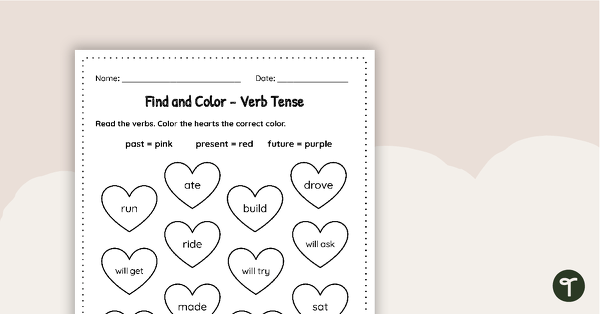
Find and Color - Verb Tense Worksheet
Differentiate between different verb tenses through this 1-page coloring worksheet.
- Plus Plan
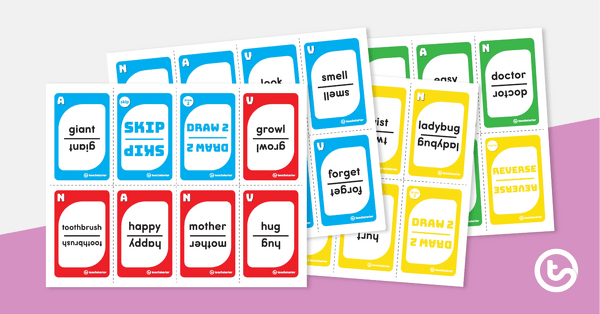
Parts of Speech Card Game – Editable
An editable parts of speech card game.
- Plus Plan
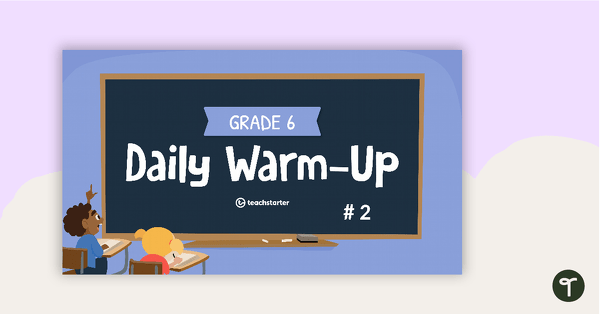
Grade 6 Daily Warm-Up – PowerPoint 2
A 76-slide PowerPoint presentation containing a variety of quick warm-up activities.
- Plus Plan
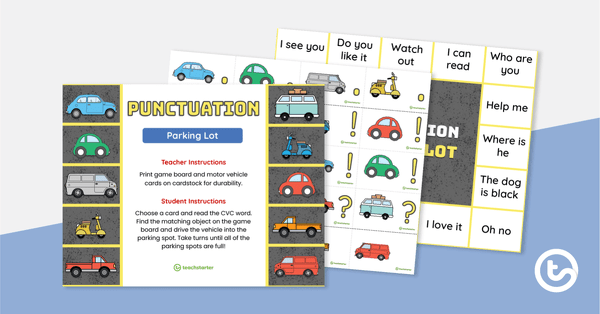
Punctuation Parking Lot Game
Practice recognizing and using end punctuation with our set of punctuation cards and matching game board.
- Plus Plan
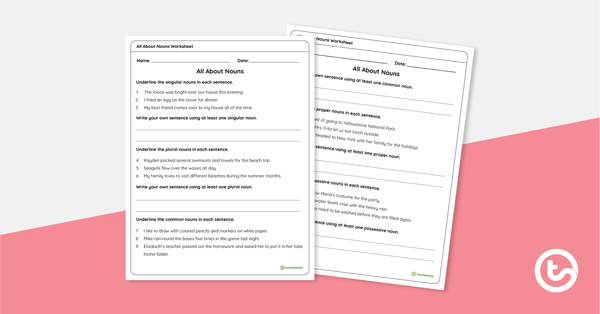
All About Nouns Worksheet
Identify different types of nouns in sentences, and write sentences containing each kind of noun.
- Plus Plan
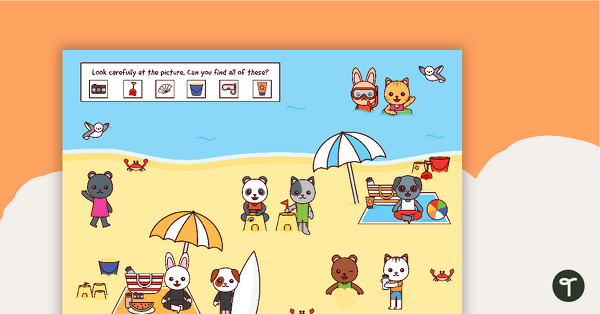
Search and Find – At the Beach
A beautifully illustrated beach scene containing everyday items that need to be found.